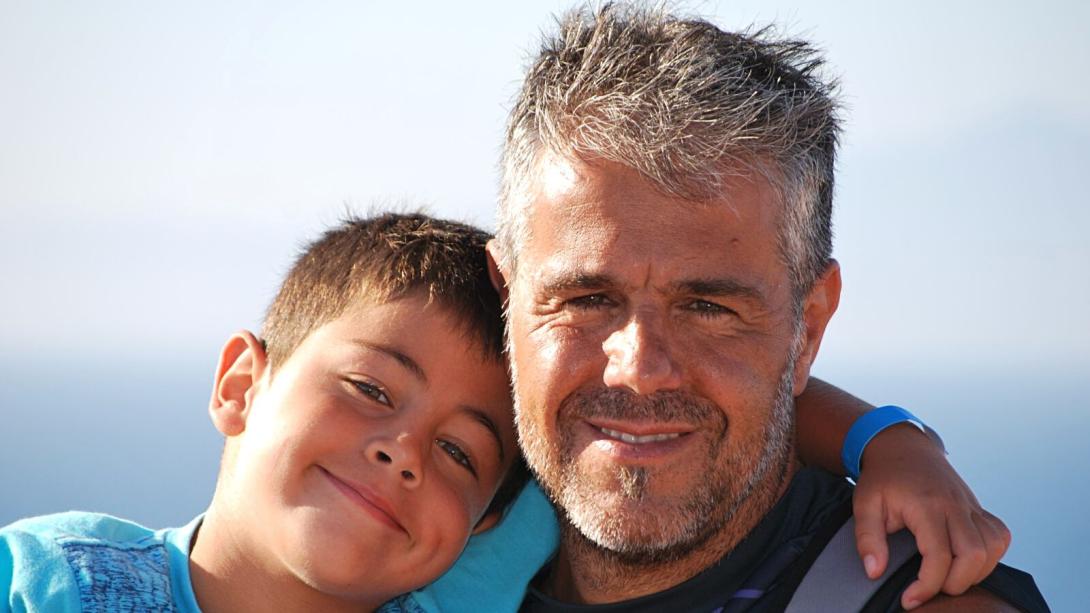"Accessing clinical trials is very important for families, we feel like we’re in a race against the clock"

Max’s father explains how the family has coped with Max’s neuromuscular disease, Duchenne muscular dystrophy
Max was diagnosed with a rare, severe disease, Duchenne syndrome, a few months after he was born. ‘At a routine check-up, the pediatrician found that, on a motor level, my son was somewhat hypotonic and didn't react to certain elements. And that's how it all started,’ recounts Jordi, Max’s father. ‘First they did a blood test, then another, and then there were many other tests after that’.
At first, the team treating Max ruled out that he had Duchenne muscular dystrophy. But the parents weren't convinced, and they wanted a second opinion. ‘It's important that the most obvious signs of rare diseases are well-known by every professional who treats children, or at least that they have access to a network of specialists who can assess the situation and guide staff towards finding a diagnosis,’ Jordi reflects now.
On that note, the SJD Barcelona Children's Hospital, alongside the Federación Española de Enfermedades Raras (FEDER), the Spanish Federation of Rare Diseases, launched the Únicas Network, to guarantee that all patients, regardless of where they live, have access to the most advanced treatments for their disease and also to necessary care resources. To do this, the network—in which 25 Spanish hospitals are integrated—expects all healthcare professionals who are part of the Únicas Network to keep in touch telematically. This allows them to consult and agree with leading professionals in any given pathology on any actions to be taken.
In search of a diagnosis, the family requested a referral to the Neuromuscular Diseases Unit at the SJD Barcelona Children's Hospital. It was here where Max was diagnosed with Duchenne syndrome, the most common type of muscular dystrophy diagnosed during infancy. It is a degenerative disease, which, due to the lack of a protein called dystrophin, causes muscle cells to be easily damaged. Children affected by this disease need a wheelchair by the age of around 12. Their life expectancy is, on average, 30 years old.
‘It's a horrible disease to have. When the child is still young and they look completely healthy, it’s hard to believe, but as the days go by, the disease makes sure to remind you that it’s there and is progressing. But in the same way, you become more hardheaded, you focus on what’s important and you work hard for it,’ explains Max’s father, now that his son is about to turn 11. ‘It's been years of extremely hard work for our family because, although Max is the one who’s facing the disease first hand, it’s us who have to stick by him during this long journey filled with hurdles and challenges,’ he adds.
Diagnosis, one of the biggest challenges with rare diseases
The first challenge for everyone involved is finding a diagnosis. ‘We always say that we were lucky because Max was diagnosed in two and a half months. But there are many children with rare diseases who go years without knowing. It's a huge blow when you're given a diagnosis like this, but there's also a good side: you know what you're up against, how it will progress, and within the realm of possibility, you can have a direct impact on it,’ he argues.
Like most rare diseases, Duchenne syndrome has no cure. ‘Some words are burned into your memory forever. To hear that your child has a severe disease and that it has no cure… No-one is prepared for that. That's why I think it's vital that all families that find themselves in this situation are able to get the psychological support they need, from the diagnosis and then throughout the whole process. It's just as important as physiotherapy or the treatment your child receives. Now our son is starting to have difficulty running or playing in the way his friends do, now that they have to adapt things in school so he can take part… having that support is essential, both for him and for us’, he notes.
Taking part in clinical trials, a gateway to hope
Being able to take part in a clinical trial that could advance knowledge and lead to the discovery of new treatments is a dream for many families with children who have a rare disease. ‘You never stop looking for information about your child’s disease, researching what studies are being done… And then, after all that, you go to the appointment and you ask the specialist: When will they do this trial here? Are you doing any? Being able to sign up for this information or being able to take part in clinical trials is so important for families, because that feeling of being in a race against the clock never goes away.At least in this way you feel like you're getting somewhere’, affirms Jordi.



